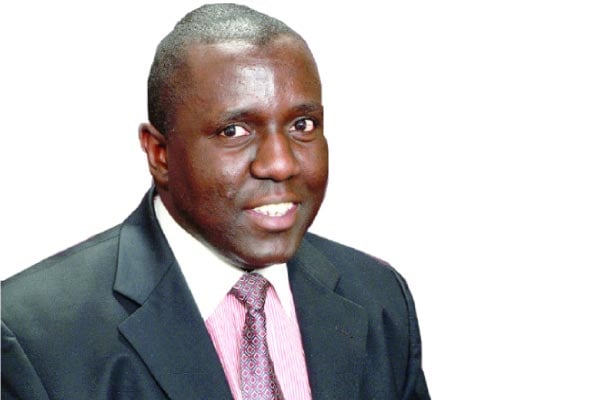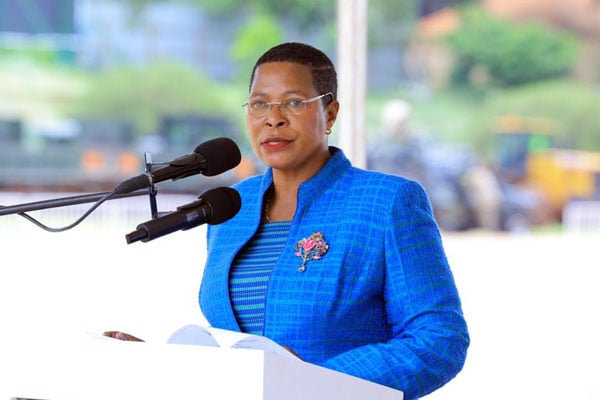Prime
The ghost of ex-parte Matovu visits Sebutinde in the Hague

Author: Karoli Ssemogerere. PHOTO/FILE
What you need to know:
- Justice Sebutinde declined to assent in any of the orders of the 13 Judge majority committing Israel to certain actions to prevent indiscriminate loss of life and property in operations that commenced with Hamas’ invasion of Israel on October 7, a massive intelligence failure that shook Israel’s conscience to its core, killing 1,200 unarmed civilians and kidnapping others.
The notable dissent of Ugandan jurist, Julia Sebutinde, the International Court of Justice (ICJ) Judge has ruffled some feathers on the international scene. In summary, she has stated that the dispute between Israel (a state-party) and Hamas (a non-state actor) with substantial control over most of what is known as the territory of the Palestine state is a political question. A political question cannot be decided by the courts, and courts must refrain from making rulings they have no means of effecting, the essence of the ex-parte Matovu decision that upheld Apollo Milton Obote’s overthrow of the 1962 Independence Constitution and issuing of new oaths to all State officers swearing allegiance to the new Constitution.
Justice Sebutinde declined to assent in any of the orders of the 13 Judge majority committing Israel to certain actions to prevent indiscriminate loss of life and property in operations that commenced with Hamas’ invasion of Israel on October 7, a massive intelligence failure that shook Israel’s conscience to its core, killing 1,200 unarmed civilians and kidnapping others.
In return, military operations in the West Bank have caused the loss of more than 20,000 lives and destruction of livelihoods. But as the conflict rages on, Israel’s strategic objective to “pave” a clear larger boundary with the West Bank, destroy miles of underground tunnels has brought the Middle East even closer to the brink of a bigger conflict with Iran and Hezbollah militants in Lebanon. The latest Israel-Hamas conflict has drawn more than the boilerplate responses of the past.
Inside the United States, Israel’s closest ally, there are sharply divided views. The file has rebelled against their superiors in the State Department. Even where the United States has used her veto inside the Security Council, the enforcement arm of the UN, it has hardly been convincing. Public Broadcasting, PBS, the civilian broadcaster describes it in daily broadcasts, as “war in the holy land.”
US President Joe Biden, already facing odds in his 2024 re-election effort, has found himself in the crosshairs of key constituencies of his rainbow coalition, African Americans, Arab Americans and liberals shattered by the indiscriminate loss of human life.
In my Harvard class of 1999, the situation is worse, pro-Israel classmates have simply jumped out of the class discussion lists. Harvard President Claudia Gay lost her job tipped out by remarks to another Harvard alumni Congresswoman Elise Stefanik of New York while defending demonstrations that have rocked US Ivy League University campuses.
Justice Sebutinde’s opinion, while legally sound, has been poorly received internationally to the extent that Foreign Affairs PS, Vincent Bageire put out a statement putting a distance between her position and that of the government of Uganda, itself an unprecedented action. Mrs. Sebutinde is an elected Judge of the ICJ, a UN organ, a retired Judge in Uganda who vacated office at age 65, three years ago. Even our own President Museveni cannot write her the missives, he dictates ex parte Matovu style to Chief Justice Alphonse Chigamoy Owiny Dollo!
In a master class I delivered to Public Policy analysts at Parliament in 2022, we were privileged to listen in on, in Parliaments’ conference room to one of the living survivors who were part of the proceedings of ex-parte Matovu.
Justice Francis Ssekandi, a retired Justice of the Court of Appeal, a former state attorney, was asked to help with research by one of the judges to the Matovu decision. The lecture was delivered at 6a.m., it was quite dark, the lecture hall was packed to capacity.
Justice Ssekandi, almost nodding off, cleared his voice, stated that the Matovu decision was a very delicate balancing act.
The judiciary could not upend their own legitimacy by ruling against the government. The class nodded in agreement. The Parliamentary chamber where we were seated has been faced with similar questions about its own legitimacy, ratifying similar decisions, extending its life, etc. Ex-parte Matovu and later decisions like Dosso in Pakistan have been blamed for legitimizing coups, yet judges just like Julia Sebutinde are helpless in unraveling a conflict left behind by the British nearly 80 years ago.
Listening to one of the speeches by Golda Meir, Israeli Prime Minister (1969-1974), stating, “Israel and Palestine are one and the same people.” She couldn’t have been further from the truth. The ICJ decision hopefully gives Israel a basis to pause and think about its approach. Of the world’s biggest conflicts in 2024, only Russia-Ukraine is primarily between state actors, the rest are a hybrid, non-state actors versus state actors, Yemen, Afghanistan, Iran, Syria, DRC, Mozambique, Chad etc. the non-state actors have not signed onto any international conventions and can not be subject to jurisdiction of bodies like the ICJ, except individuals arrested and arraigned before the International Criminal Court.
Mr Ssemogerere is an Attorney-At-Law and an Advocate. [email protected]




